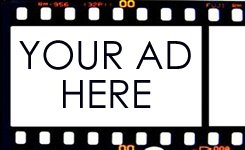Nowadays, sophisticated cameras offer many options. We are dazzled by artificial intelligence-based metering, exposure focusing, and autofocus. We have long-reaching zoom lenses, face recognition, fast burst rates and seemingly infinite image storage on cards that have so much space our "shots left" readouts say 999 because our cameras don't have enough digits to reflect our 16MB memory cards' capacity. We have image sharing web sites with millions of photos, and tens of thousands of new images added daily.
And yet, one of the most successful photographers of the 20th century, Henri Cartier-Bresson, had a single camera--a Leica rangefinder--and a 50mm lens. He didn't even have a light meter. He shot black-and-white film, hand-holding for every frame. He stopped every 36 exposures to rewind and reload. He had to wait until that night or the next day, or perhaps longer, to process the negatives, make contact sheets and study them with a magnifying loupe to see the results. And with that simple set-up, he built a body of work that would influence generations of photographers and help to define photojournalism.
What piece of equipment did HCB use that we should use more?
In these days of technical marvels, we tend to forget to use our brains. A camera can't compose, see how colors, light and shape interact, and yet we rely on its sophistication to "take great pictures" for us when all it is capable of doing is making a technically correct exposure. It's up to us to modify exposure to fit a mood or situation, find a good place for the camera relative to the subject, and decide what to include within the frame, and what to leave out. What was HCB's most important piece of equipment? His brain, of course!
So whether you're using the latest high-end DSLR, a sub-$100 compact, or an old all-manual film camera, don't forget that the most valuable piece of equipment you own is sitting there, right between your ears.
Use it wisely.
 Yellow Walls, Morocco - PPDesigns
Yellow Walls, Morocco - PPDesigns















5 comments:
Very well said. A camera and tools does not define the photographer. It is their creative essence and how they interact with their subject. Digging this post!
I really needed this post after being a little down seeing everyone with high-dollar DSLRs. I have several types of cameras, film and digital, and have favorite shots from them all. It doesn't take a $3000 camera, all it takes is a person who knows how to use any type of camera, and it's a learning process. I'm just so impatient.....
I think this also points to another issue for photographers. Everyone in the world thinks they are one now. Digital has changed that in such a big way, for the good and bad. Here's hoping I end up on the right side.
i am loving the VERY astute introspection in all these comments. so happy to see that you are reading this blog and enjoying this post. :)
your loving editor
such a great reminder that we are the camera! :)
Post a Comment